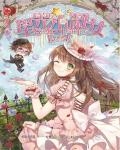Chapter 196: Planning for Future Generations
Whether it was Zhu Biao's plan or Zhu Yuanzhang's plan, it would take time to prepare.
Long-distance voyages are no small matter, and they are also a headache-inducing economic battle.
Chen Dong and his crew wouldn't be able to return until at least next year. The northern route was prone to icebergs during the autumn and winter, so it was safest to depart in mid-spring.
After Chen Di made several trips back and forth and found more safe routes, even without a steam engine, they would be able to make several trips back and forth every year by following the direction of the monsoon and ocean currents.
Chen Dong and others settled down with peace of mind, and Zhu Yuanzhang was no exception.
His generation can prove that the earth is spherical, so why not build a big one so that future generations will use the standards of our Ming Dynasty?
Zhu Yuanzhang stroked his beard and said, "How about this starting line passing through the Dragon Throne in Nanjing?"
Zhu Biao was at a loss for words: "What if the emperor wants to rebuild the palace? Why not go through the central axis of the Temple of Heaven? The Temple of Heaven is not inhabited, so even if it is rebuilt, it can be built further away."
Zhu Yuanzhang thought for a moment and sighed, "Well, the Temple of Heaven is indeed more suitable."
So under Zhu Biao's planning, Emperor Taizu of the Ming Dynasty casually placed the zero time zone and zero line in Nanjing.
Later generations of students were very grateful for this.
They calculated time zones and longitude and latitude lines much more easily than Zhu Biao did in his previous life.
"When we send our people out to sea, let's calculate the area of the Earth." Zhu Biao said cheerfully, "Don't mark the East Continent on our fleet's map yet. Mark everything else for the convenience of people around the world."
Zhu Yuanzhang glanced at his son and said with a half-smile: "Biao'er, you must be thinking of some bad ideas."
Zhu Biao said confidently , "No bad idea! I'm just setting standards for them. Do you know how important standards are? Oh, and let's change our calendar. The reign titles can still be used, but if there's no emperor in the future, we'll have to use someone else's calendar. How about the Yellow Emperor calendar, the Yanhuang calendar, or even the Pangu calendar?"
Excited, excited!
Zhu Yuanzhang thought about it and found that it was indeed the case.
Zhu Yuanzhang had already accepted the Ming Dynasty's demise, and declared, "Whoever becomes emperor of China after the Ming, I curse him to die violently upon taking the throne." Without reign titles, the calendar had to be decided in advance. Otherwise, using a foreign calendar would be shameful.
"Indeed, let's get the people at the Imperial Observatory to discuss it," Zhu Yuanzhang said. "They should be able to quickly formulate a new calendar by looking through the history books. Then the new calendar and reign titles will coexist. Biao'er, if you have any other ideas, tell me everything you think."
Zhu Biao took out a thick book from his arms without any hesitation, which contained suggestions on how to define everything from astronomical calendar to geographical terms and then to mathematical, physical and chemical terms.
Zhu Biao is not a professional, and these issues should be left to professionals to formulate. He is just throwing out some ideas to stimulate discussion.
As all of us know, "standards" equal discourse power. If the Ming Dynasty had not established discourse power while it stood at the top of the world, and if it had been seized by Westerners, many scholars would have become increasingly brainwashed the more they studied Western-dominated fields (especially the humanities and social sciences).
Zhu Biao didn't know whether China would fall into decline again in the future, but now that the ancestors had set the "standard", when future generations wanted to rebuild China's glory, they could use the history books "since ancient times" instead of starting from scratch and using other people's standards.
As Zhu Yuanzhang flipped through Zhu Biao's book, a sentence came to his mind, "For the sake of future generations."
Zhu Yuanzhang smiled and said, "This is indeed very important. Those people in the Ministry of Rites are always arguing about restoring the rituals of this dynasty or that dynasty. It would be better to let them argue about this. It would be more meaningful."
Zhu Biao ordered them to dig out copper and iron ore from the ground. They did not dig because their stone weapons were enough to make them the dominant force within the range of their feet.
In fact, Zhu Biao already knew the metal smelting and forging techniques of the Inca Empire and the Aztec Empire. Chen Dong was talking about turkey.
In the vast universe, a planet with life is a miracle, and a planet with intelligent creatures is a miracle among miracles.
On a planet where intelligent life exists, the development of civilization also depends on luck.
Many books in later generations that study American civilization always secretly hide some ideas that are inconsistent with the facts, as if American civilization lived a savage life before the arrival of the colonists.
At some point, even the domestication of corn, potatoes, sweet potatoes, etc. became the credit of Western colonists.
In fact, even if you haven't studied American history, just reading Chinese history books reveals that corn had already reached the Ming Dynasty by the mid-to-late Ming Dynasty. Even if the Ming Dynasty rulers didn't pay much attention to it, corn's appearance had already been described, and it looks almost the same as modern corn.
No crop can evolve to perfection in just a hundred years.
If you have the opportunity to travel to the ruins of the Mayan civilization, you will see a mural of the Mayans offering corn to the sun god. Archaeologists have determined that the main food of the Mayan civilization was corn.
Primitive corn resembling ears of wheat was discovered in the Xihuatotla Cave ruins, dating back nine thousand years. Over these nine thousand years, the wisdom of the American people has contributed three high-yield crops and many popular spices and vegetables to the world. They were not barbarians who only knew how to gather and hunt.
The American civilization did not develop simply because of bad luck.
There were too few people on this isolated continent. The latitude most suitable for their civilization to develop was a narrow —the same latitude that encompassed the extinct Mayan civilization, the surviving Inca Empire, and the Aztec Empire.
Without communication, even wars are limited to a small range. As Mencius said, "If a country has no enemies outside its borders, it will perish," and "it will die in comfort."
They lacked an opponent of equal strength, so they had no motivation to move forward. When they finally met an opponent, it was too powerful for them to resist.
The rest , such as the lack of shallow iron and copper mines on the surface and the lack of domesticated large animals, are just superficial reasons.
If they had a large number of equally powerful opponents, they would have dug the iron and copper mines from the ground, even at the cost of human lives. A civilization that could build the Mayan pyramids would surely have been able to dig copper and iron mines from the ground. They didn't dig simply because their stone weapons were enough to allow them to dominate the area they could reach on foot.
In fact, the metal smelting and forging technology of the Inca Empire and the Aztec Empire was already relatively complete, but it was only used to make utensils needed by the nobility and sacrificial supplies for worshiping gods. Only a very small number of noble soldiers would use bronze weapons.
The clay toys unearthed from American civilizations all had wheels and frames, but because they were not necessary, these things did not become tools of life.
After Chen Dong came to Beijing, he was overwhelmed by the new and interesting things he saw.
He was already thinking about how to make alpacas pull carts; whether he could tame wild buffaloes; and whether his hometown had minerals that could be used to forge iron tools...
He was still wondering if he could use convenient paper and pen to record symbols that only witches could understand, and also create text that others could understand.
Zhu Biao looked at Chen Dong, whose face was filled with beautiful expectations for the future, and couldn't help feeling a little sour.
Chen Dong didn't know that one hundred and fifty years later, they would just be setting standards for themselves. Do you know how important standards are? Oh, and let's change our calendar. We can still use the reign titles, but if there's no emperor in the future, we'll have to use someone else's calendar. How about a Yellow Emperor calendar or a Yanhuang calendar? Or: "Anything else you want to say?"
Zhu Biao took out another thick book: "A new heavenly book?"
Zhu Yuanzhang quickly snatched the book away, then looked at Zhu Biao suspiciously .
Today, Zhu Yuanzhang still doesn't know why his son could fit so many things in his arms.






